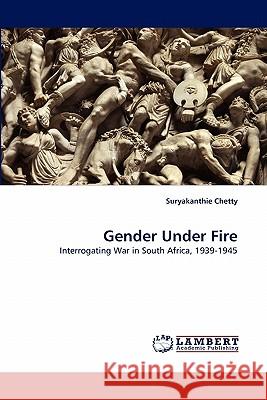Gender Under Fire » książka
Gender Under Fire
ISBN-13: 9783843380850 / Angielski / Miękka / 2011 / 180 str.
South Africa stood at a crossroads during the Second World War. There existed the potential for creating a new vision for gender and race roles. It was, however, the very upheaval in society caused by the war, which led to a rise of conservatism and the eventual creation of the repressive Apartheid state. This work argues that examining the war from the perspective of changing gender roles sheds light not only on civic and family life, but also on the South African state. Using previously inaccessible state records on the war era, the book explores a case study of women's auxiliary military groupings as a lens through which to view this crossroads. "Gender Under Fire" interrogates the naturalization of gender roles prevalent across so much of South Africa as the war opened and probes to what extent this consolidated or shifted during the course of the war and its immediate aftermath.
South Africa stood at a crossroads during the Second World War. There existed the potential for creating a new vision for gender and race roles. It was, however, the very upheaval in society caused by the war, which led to a rise of conservatism and the eventual creation of the repressive Apartheid state. This work argues that examining the war from the perspective of changing gender roles sheds light not only on civic and family life, but also on the South African state. Using previously inaccessible state records on the war era, the book explores a case study of womens auxiliary military groupings as a lens through which to view this crossroads. "Gender Under Fire" interrogates the naturalization of gender roles prevalent across so much of South Africa as the war opened and probes to what extent this consolidated or shifted during the course of the war and its immediate aftermath.











